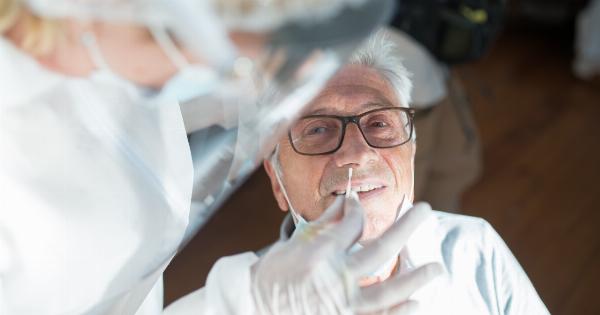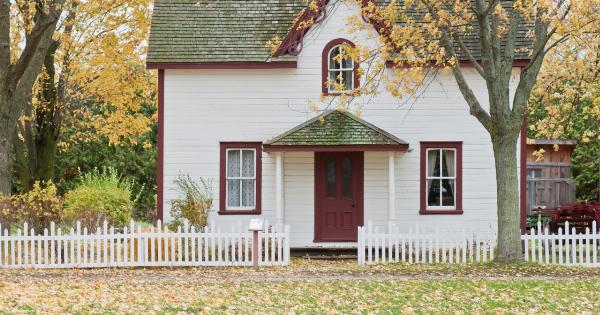Nose and sinus diseases can significantly impact an individual’s quality of life and overall health. These conditions can cause symptoms such as nasal congestion, facial pain, headaches, and difficulty breathing.
Fortunately, advanced therapy approaches are available to alleviate these symptoms and provide long-term relief. In this article, we will discuss various advanced treatment options for nose and sinus diseases, including surgical, medical, and alternative methods.
Surgical Treatments
Surgical interventions are often considered for chronic and severe cases of nose and sinus diseases. These procedures aim to correct structural abnormalities, remove nasal and sinus blockages, and improve overall airflow.
Some common surgical treatments include:.
1. Functional Endoscopic Sinus Surgery (FESS)
FESS is a minimally invasive surgical technique that involves the use of an endoscope to access and remove obstructions within the sinuses. This procedure helps restore normal sinus drainage, reduce inflammation, and improve breathing.
2. Balloon Sinuplasty
Balloon sinuplasty is a less invasive alternative to traditional sinus surgery. It utilizes a small, flexible balloon catheter that is gently inserted into the sinus cavity and inflated to widen the blocked passage.
This procedure helps maintain sinus functionality and provides relief from chronic sinusitis symptoms.
3. Septoplasty
Septoplasty is a surgical procedure performed to correct a deviated septum, which is a common cause of nasal blockage and breathing difficulties.
During the procedure, the nasal septum is straightened and repositioned to improve airflow and alleviate symptoms.
Medical Treatments
Medical treatments play a crucial role in managing nose and sinus diseases and may be used alone or in conjunction with surgical interventions. These treatments aim to reduce inflammation, improve symptoms, and prevent disease progression.
Some commonly prescribed medical treatments include:.
1. Nasal Steroid Sprays
Nasal steroid sprays reduce inflammation in the nasal passages and sinuses, providing relief from symptoms such as congestion, sneezing, and itching. These sprays effectively control the underlying inflammation and can be used for long-term management.
2. Antihistamines
Antihistamines are commonly used to manage allergies and allergic rhinitis, which often accompany nose and sinus diseases. These medications work by blocking the effects of histamines and reducing symptoms such as itching, sneezing, and runny nose.
3. Antibiotics
In cases where there is evidence of bacterial infection within the sinuses, antibiotics may be prescribed to combat the infection.
These medications help eliminate bacteria and reduce inflammation, providing relief from symptoms and preventing complications.
Alternative Methods
In addition to surgical and medical treatments, several alternative methods can help alleviate symptoms and improve the overall health of individuals with nose and sinus diseases. These alternative approaches include:.
1. Nasal Irrigation
Nasal irrigation involves flushing the nasal passages with a saline solution to remove irritants, excess mucus, and allergens. This practice can help relieve congestion, reduce inflammation, and promote sinus health.
2. Herbal Remedies
Certain herbal remedies, such as eucalyptus oil, peppermint oil, and chamomile tea, have shown promise in relieving symptoms of nose and sinus diseases.
These natural remedies possess anti-inflammatory and antimicrobial properties, which can help reduce congestion and improve respiratory health.
3. Acupuncture
Acupuncture, a traditional Chinese therapy, involves the insertion of fine needles into specific points on the body.
This treatment approach can help alleviate symptoms of nose and sinus diseases by promoting better circulation, reducing inflammation, and boosting the body’s natural healing process.
Lifestyle and Home Remedies
Alongside advanced therapy approaches, incorporating certain lifestyle and home remedies can provide additional relief from symptoms and improve overall nose and sinus health. Some essential lifestyle measures include:.
1. Maintaining Proper Hydration
Drinking an adequate amount of water helps keep the nasal passages and sinuses hydrated, reducing the thickness of mucus and promoting healthy sinus function.
2. Avoiding Environmental Triggers
Avoiding known environmental triggers, such as tobacco smoke, strong odors, and allergens, can help prevent exacerbation of symptoms and reduce the likelihood of developing nose and sinus diseases.
3. Using Humidifiers
Using a humidifier in the bedroom or other dry environments can help keep the nasal passages moist and alleviate nasal congestion.
Conclusion
Advanced therapy approaches provide a range of effective options for individuals suffering from nose and sinus diseases.
Whether through surgical interventions, medical treatments, alternative methods, or lifestyle changes, relief from symptoms and improved overall health are achievable goals. It is crucial to consult with healthcare professionals to determine the most suitable treatment plan based on individual circumstances and requirements.































